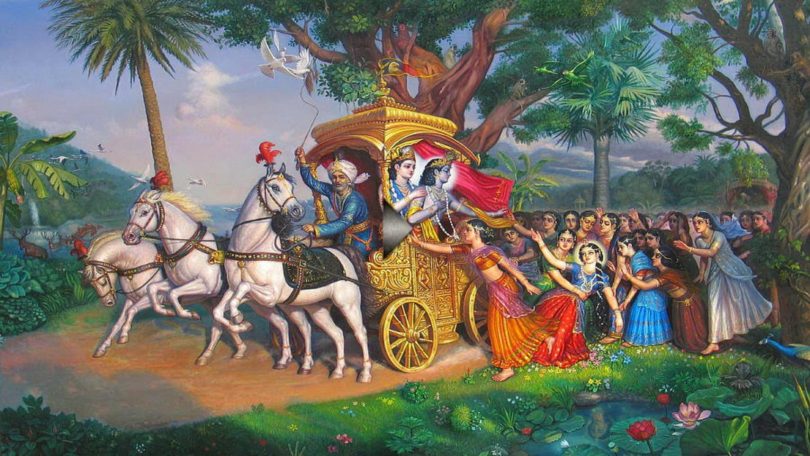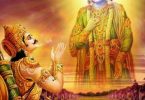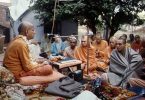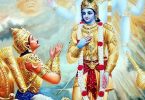Question: Why Kṛṣṇa did not return to Vraja, and why Nanda did not come to visit Him in Mathura or Dwaraka?
Answer By Romapada Swami:
SB 10.46.1 ~ Jiva Goswami’s Tosani Commentary
In sorrow, with hopeless heart, I offer respects to Kṛṣṇa, the only shelter for those suffering, to suffering people of Vraja, and to Uddhava who alleviated their suffering. Having completed his preliminary duties, worrying about the agony of the people of Vraja and his own promise to return made to the gopīs and Nanda, Kṛṣṇa should have returned to Vraja. But he did not go because he could not take lightly the orders of Vasudeva, who worried that if he went there he would not return to Mathurā because of extreme attachment of Nanda and Yaśodā.
yāta yūyaṁ vrajaṁn tāta vayaṁ ca sneha-duḥkhitān jñātīn vo draṣṭum eṣyāmo vidhāya suhṛdāṁ sukham “Now you should all return to Vraja, dear father. We shall come to see you, our dear relatives who suffer in separation from us, as soon as we have given some happiness to your well-wishing friends.” SB 10.45.23 He had made the promise to return but Nanda had not made a specific request. The elders of Mathurā however desired that he protect the city. To ignore that request would be inauspicious for him. He also considered that he could not protect anyone from Jarāsandha and others by going to Vraja whereas he could do this by staying in the fort of Mathurā. He then spoke to Uddhava in the next verse, without Vasudeva hearing. Later he will say: api smaratha naḥ sakhyaḥ svānām artha-cikīrṣayā gatāṁś cirāyitāñ chatru– pakṣa-kṣapaṇa-cetasaḥ My dear girlfriends, do you still remember me? It was for my relatives’ sake that I stayed away so long, intent on destroying my enemies. SB 10.82.41 This indicates that among other causes, he stayed away to perform countless actions such as defeating Jarāsandha and other demons. If he did not do this, there would be calamity for both the Yadus and the people of Vraja. In order to pretend indifference to the people of Vraja he did not call them to his side in Mathurā. There would also be great difficulty in adjusting affectionate behavior with two sets of parents simultaneously. In bringing the gopīs to Mathurā and in not bringing them there would be problems. Thus he already said that he would come to Vraja (SB 10.45.35). He did not say that he would call them to Mathurā. He said he would come to see them. He did not say, “You should come here.” Thus Nanda, though in great pain, did not leave Vraja in order to see Kṛṣṇa and Balarāma in Mathurā.
It was also not suitable for Kṛṣṇa to appear in both places at once when Jarāsandha caused problems, since Nanda would come to know of this, and thus would lose his awareness that Kṛṣṇa was his alone, and his affection for him would wane. There is the following principle: yathā dūra-care preṣṭhe mana āviśya vartate strīṇāṁ ca na tathā cetaḥ sannikṛṣṭe ’kṣi-gocare “When her lover is far away, a woman thinks of him more than when he is present before her.” SB 10.47.35 Because of this, he decided not to go to Vraja at that time.
In his aprakaṭa form however Kṛṣṇa remains in Vraja at all times. This will be explained. mā śocataṁ mahā-bhāgāv ātmajān sva-kṛtaṁ bhujaḥ jāntavo na sadaikatra daivādhīnās tadāsate “Kaṁsa said: O fortunate couple! Do not lament for your children who suffered because of their karmas. All jīvas, controlled by fate, never stay in one place forever.” SB 10.4.18 bhavatīnāṁ viyogo me na hi sarvātmanā kvacit “You are never actually separated from me, for I am the soul of all creation.” SB 10.47.29. However, those participating in the prakaṭa pastimes are not aware of this. If in the prakaṭa pastimes he were to appear secretly at some time in Vraja, this would not create faith in those with strong longing, because a temporary manifestation would only cause disturbance. Therefore, it is described in Padma Purāṇa and hinted at in Bhāgavatam that he would return permanently only after killing Dantavakra. He did not come until the time when he would personally be able to stay.
He thought that sending Balarāma to solve the problems without himself coming would also cause suffering. He indicated that Uddhava was his dear friend, equal to himself. Uddhava would console the people of Vraja, creating faith by giving some false instructions and letting them hear of his powers as a great king. Two chapters are dedicated to describing this pastime in order.
[Elsewhere, it is stated that Krishna also considered that if he were to return to Vraja, the remaining demons would come to know of His affection for the Vrajavasis, and would surely harass or even attack them. For this reason, He sent Uddhava instead.]
~~~
Another reason, found in Krishna’s letter to the gopis:
“But the actual reason why I, the beloved object of your sight, have stayed far away from you is that I wanted to intensify your meditation upon Me and thus draw your minds closer to Me.” SB 10.47.34
Gopal Campu, Uttara Campu (in Kurukñetra): “To please his friend Vasudeva, Nanda did not reveal his desire. Three months quickly passed at Kurukñetra because of the love he had for Kåñëa and Balaräma. Each day, he said he would go the next day. Kåñëa had the unavoidable duty of killing more demons. Thus Nanda approached Vasudeva so that he could return to Vraja without taking Kåñëa on the pretext that he had been away from Vraja too long. He did not approach directly but through Uddhava, since he was too shy directly to approach him. But he did not ask Kåñëa for permission to go through Uddhava.”
SB 10.45.25 VCT commentary: “Even though Vasudeva and Devaké are full of prema and cannot be neglected, the devotees in Vraja headed by Nanda Mahäräja have prema which is unequalled and unexcelled. Therefore, it would certainly be all the more improper to ignore them. The purpose of Kåñëa’s appearance to kill the demons and protect the devotees must also be carried out. In addition, Kåñëa’s pastimes in Dvärakä and other places must be exhibited, such as kidnapping Rukmiëé, stealing the pärijäta tree, and associating with Yudhiñöhira. Kåñëa must also fulfill His promise to the gopés to return after seeing the Dhanur-yajïa (bow sacrifice). Kåñëa also had to reveal the super excellence of the gopés’ love to the world by showing it to Uddhava, the most exalted of the entire retinue of the Lord’s devotees in Mathurä and Dvärakä and the crown jewel of the learned. Just as a man places his valuable gold within fire to reveal its purity, Kåñëa placed His most beloved devotees, the Vraja-gopés, in the fire of separation from Him in order to manifest the unprecedented quality of their Kåñëa-prema.”







